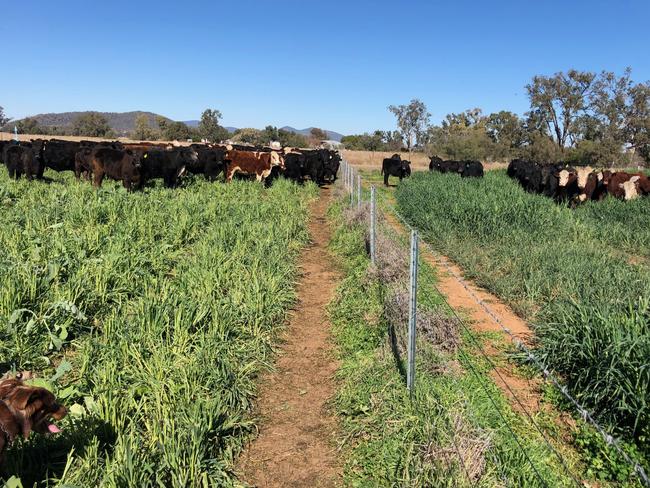Wilmot Cattle Company sells soil carbon credits to Microsoft in landmark deal
An Australian grazing company has sold more than half a million dollars worth of carbon credits to US tech giant Microsoft in a landmark deal.

AN Australian grazing company has sold more than half a million dollars worth of carbon credits in the US, in a move it argues could lead the way for the livestock industry.
New England-based Wilmot Cattle Company has sold the credits in a deal struck with Microsoft, after the tech giant earlier this month announced its goal to be carbon negative by 2030.
The credits have been verified and sold as CarbonPlus grassland credits, via the US-based Regan Network, and are the first to be sold as organic soil carbon sequestration achieved by rotational grazing.
While specific details of the sale have not been released due to confidentiality, it’s understood more than 40,000 credits – each representing one metric tonne of carbon sequestered as soil carbon, thanks to regenerative farming – valued at more than $500,000 are involved.
Microsoft can then use the credits to offset its carbon emissions elsewhere.
Chairman of Macdoch Group, which owns the Wilmot Cattle Company, Alasdair MacLeod said he believed this is a major step forward for the industry.
“Instead of being part of the environmental problem, we believe that well managed livestock can be part of the solution to the challenge of carbon emissions,” Mr MacLeod said.
Mr MacLeod is the son-in-law of Rupert Murdoch, executive chairman of News Corp, publisher of The Weekly Times.
Agricultural emissions – the bulk of which are direct livestock emissions – accounted for 12.9 per cent of Australia’s emissions inventory in 2019.
It’s estimated widespread adoption of carbon-friendly farming practices could sequester up to 374 million tonnes of carbon dioxide equivalent each year, which could counter up to 70 per cent of Australia’s total current emissions annually.
Wilmot’s general manager Stuart Austin said better grazing management had been put in place in recent years at two properties – at Ebor and Walcha – partly to build drought resilience.
“Grazing management has become an important focus of this business over the last few years and has resulted in a boost to productivity and to profit, and to ensuring that we are not overgrazing through drought years,” Mr Astin said in a statement.
“The prospect of being paid for carbon sequestration while building a resilient landscape has encouraged this change and will ensure its permanency.”
Under Regan Network’s accreditation scheme, Wilmot must maintain its management practices for at least 25 years after the credits are issued.
The credits go to the US as they are verified under a US program, which uses a different methodology than Australia; however, Wilmot indicated it would likely participate in an Australian scheme, the methodology of which is being refined under the Emissions Reduction Fund.
Mr MacLeod said the company was working with the Federal Government’s Clean Emergy Regulator to help develop a regulated soil carbon credits market here.
“As as a result of this work, we hope that soil carbon projects will become widely available to Australian farmers in the near future,” Mr MacLeod said.
“There is a great deal of work still to be done to refine carbon farming techniques and soil carbon measurement methodologies, but here is justification for the emphasis that the Australian Government has put on soil carbon as a major contributor to the country’s decarbonisation strategy.”
MORE


